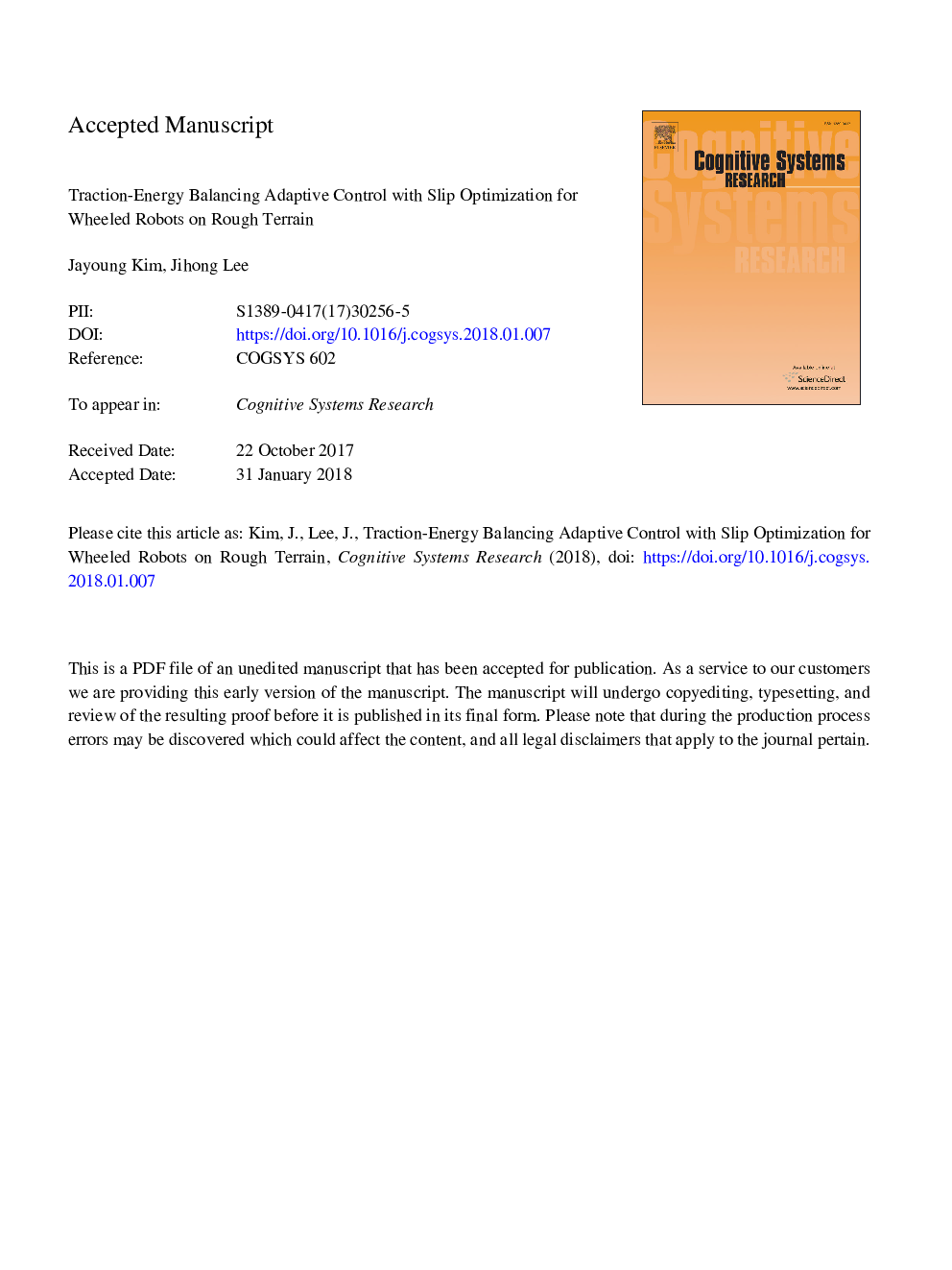| Article ID | Journal | Published Year | Pages | File Type |
|---|---|---|---|---|
| 6853803 | Cognitive Systems Research | 2018 | 19 Pages |
Abstract
On rough terrain, excessive wheel slippage is easily generated by changes of surface conditions such as soil types and geometries. It induces considerable loss of wheel traction and battery energy. To prevent this, wheeled robots should consistently recognize the current situation generated between wheel and surface. And also wheeled robots are required to optimally control wheel motion in limited wheel traction and battery capacity. Therefore, this paper proposes a novel wheel control algorithm based on slip optimization of traction and energy, which is adaptive to change of surface condition. Proposed wheel control algorithm is called Traction-Energy Balancing Adaptive Control (TEB) in this paper and TEB assigns optimized rotation speed to each wheel by observing wheel slip ratio which is a key parameter of TEB. As functions of TEB, TEB is largely divided into three main parts; (1) slip optimizer (2) slip controller (3) SC-compensator. In the slip optimizer, two optimal slip models were derived as a function of slip ratios regarding maximum traction and tractive efficiency using experimental data about wheel-terrain interaction in three types of soil (grass, gravel and sand). And the optimal slip models were employed in order to determine a desired slip value of wheel with observation of a change in actual robot velocity as control input in the slip controller. For optimal slip control, the proposed slip controller is based on conventional PID controller with compensating disturbance in the controller (SC-compensator) which occurs by change of surface shapes. In the SC-compensator, radial function networks (RBFN) was applied in the slip controller and RBFN was of help to readjust previously set PID gains depending on occurred slip error. Finally, TEB was experimentally verified by controlling a real robot having four wheels on various terrain types.
Related Topics
Physical Sciences and Engineering
Computer Science
Artificial Intelligence
Authors
Jayoung Kim, Jihong Lee,
